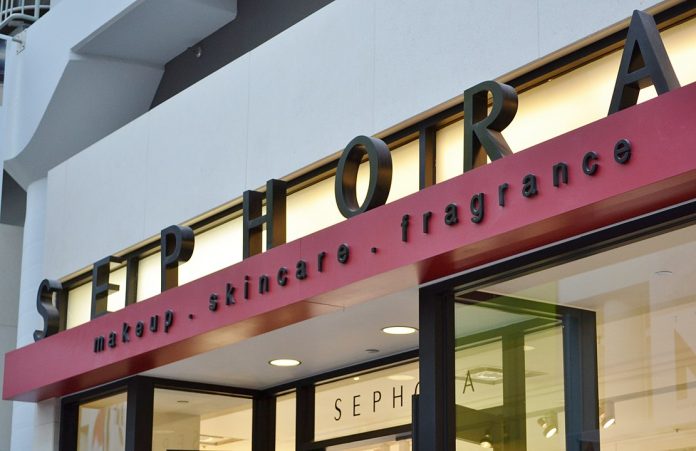“We recognize that racial bias affects our stores, just as it affects all retailers,” Deborah Yeh, the company’s chief marketing officer, said in an interview. “Discrimination and unfair treatment are woven into institutions across America, and retail is not excepted.”
“We recognize that racial bias affects our stores, just as it affects all retailers,” Deborah Yeh, the company’s chief marketing officer, said in an interview. “Discrimination and unfair treatment are woven into institutions across America, and retail is not excepted.”
“We recognize that racial bias affects our stores, just as it affects all retailers,” Deborah Yeh, the company’s chief marketing officer, said in an interview. “Discrimination and unfair treatment are woven into institutions across America, and retail is not excepted.”
“We are all accountable to the urgent work of building a more just, more equitable world — and these new projects send a clear signal of Apple’s enduring commitment,” chief executive Tim Cook said in a news release.
Sephora’s plan, retail and crisis management experts said, provides a comprehensive — and necessary — road map for the industry: Black shoppers typically spend more on skin care, fragrances and hair care than their White counterparts, amounting to more than $1 billion each year, according to Nielsen.
Rihanna’s Fenty Beauty line, for example, has brought in hundreds of millions of dollars and waves of Black shoppers since it debuted at Sephora in 2017. The brand known for inclusivity and makeup that fits a broad range of skin tones generated an estimated $570 million in revenue in 2018, according to Forbes, which values the company at $3 billion. Fenty Beauty is co-owned by Sephora’s parent company, the luxury conglomerate LVMH Moët Hennessy Louis Vuitton.
Sephora surveyed about 3,000 shoppers and 1,700 employees at its stores and others across the country. Among its findings were that Black shoppers routinely felt sized up and discriminated against for their skin color and ethnicity. Some reported being subject to additional surveillance while browsing or being told they “could not afford an expensive item.” Shoppers of color also felt they had to wait longer than their White counterparts to get help from employees.
Sephora surveyed about 3,000 shoppers and 1,700 employees at its stores and others across the country. Among its findings were that Black shoppers routinely felt sized up and discriminated against for their skin color and ethnicity. Some reported being subject to additional surveillance while browsing or being told they “could not afford an expensive item.” Shoppers of color also felt they had to wait longer than their White counterparts to get help from employees.
“The goal is to provide more consistent experiences for all shoppers and to minimize concerns regarding store policing,” said George-Axelle Broussillon Matschinga, the company’s vice president of diversity and inclusion.
The efforts come two years after Solána Imani Rowe, the rapper known as SZA, tweeted about an employee at a Sephora store in California who called security to make sure the performer wasn’t stealing. Jones, a former cast member and writer on “Saturday Night Live,” later tweeted about an incident in which she said her makeup artist had been mistreated by store employees. “NO MORE SEPHORA,” she wrote.
Executives said those incidents reinforced the need for more inclusive protocols. They later closed U.S. stores to have employees undergo an hour-long training session on diversity and inclusion. The company took similar action last summer, following Floyd’s killing, and said such efforts will be ongoing and regular. It also pledged to devote at least 15 percent of its shelf space to Black-owned brands, although executives did not say how soon they would do so. (The retailer currently carries eight Black-owned brands, which is less than 3 percent of its portfolio of about 290 brands.)
In the coming months, though, executives say they plan to take more deliberate action to make shoppers of color feel welcome in their stores. Sephora is rethinking its advertising and social media marketing to include people of more diverse backgrounds, ages, ethnicities and identities. Products by Black-owned brands will be featured prominently in stores and online, in contrast with chains that typically keep such items in separate aisles or locked away.
Sephora also is changing how it solicits feedback, so that it can track the experiences of all shoppers, not just those who make a purchase. Most patrons do not report negative experiences, Yeh said, making it difficult for retailers to monitor for discrimination. Instead of post-checkout surveys on receipts or by email, the company will position employees at store exits to check in with shoppers as they are leaving. It expects to combine those results with feedback collected through call centers and social media.
“Retail is an industry that is obsessed with data, and this is a case where obsession with data could be good for everybody,” Yeh said, adding that the company is sharing its findings broadly because it hopes to encourage others in the industry to take similar action. “[Our study] may not paint the most favorable picture of the retail industry, but we are being open because one retailer cannot fix this problem. We want our colleagues and partners to join us.”









